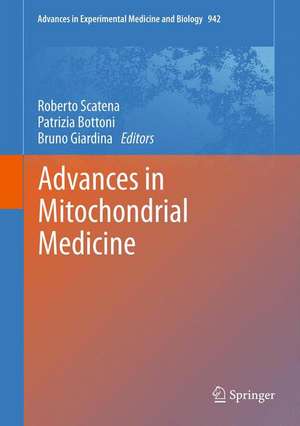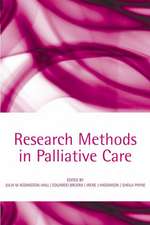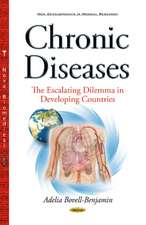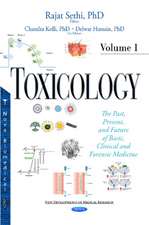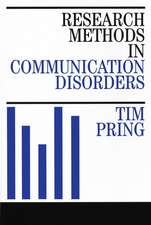Advances in Mitochondrial Medicine: Advances in Experimental Medicine and Biology, cartea 942
Editat de Roberto Scatena, Patrizia Bottoni, Bruno Giardinaen Limba Engleză Hardback – 9 feb 2012
| Toate formatele și edițiile | Preț | Express |
|---|---|---|
| Paperback (1) | 1324.18 lei 38-45 zile | |
| SPRINGER NETHERLANDS – 23 aug 2016 | 1324.18 lei 38-45 zile | |
| Hardback (1) | 1433.83 lei 6-8 săpt. | |
| SPRINGER NETHERLANDS – 9 feb 2012 | 1433.83 lei 6-8 săpt. |
Din seria Advances in Experimental Medicine and Biology
- 9%
 Preț: 719.56 lei
Preț: 719.56 lei - 5%
 Preț: 717.00 lei
Preț: 717.00 lei - 5%
 Preț: 717.00 lei
Preț: 717.00 lei - 15%
 Preț: 640.24 lei
Preț: 640.24 lei - 5%
 Preț: 715.71 lei
Preț: 715.71 lei - 5%
 Preț: 716.28 lei
Preț: 716.28 lei - 20%
 Preț: 691.93 lei
Preț: 691.93 lei - 5%
 Preț: 1031.00 lei
Preț: 1031.00 lei - 5%
 Preț: 820.42 lei
Preț: 820.42 lei - 5%
 Preț: 716.28 lei
Preț: 716.28 lei - 15%
 Preț: 641.38 lei
Preț: 641.38 lei - 5%
 Preț: 717.20 lei
Preț: 717.20 lei - 5%
 Preț: 715.35 lei
Preț: 715.35 lei - 5%
 Preț: 1113.83 lei
Preț: 1113.83 lei - 20%
 Preț: 1161.71 lei
Preț: 1161.71 lei - 5%
 Preț: 1170.51 lei
Preț: 1170.51 lei - 18%
 Preț: 1119.87 lei
Preț: 1119.87 lei - 5%
 Preț: 1288.48 lei
Preț: 1288.48 lei - 5%
 Preț: 1164.67 lei
Preț: 1164.67 lei - 5%
 Preț: 1101.73 lei
Preț: 1101.73 lei - 18%
 Preț: 1123.67 lei
Preț: 1123.67 lei - 5%
 Preț: 1435.64 lei
Preț: 1435.64 lei - 20%
 Preț: 1044.10 lei
Preț: 1044.10 lei - 18%
 Preț: 946.39 lei
Preț: 946.39 lei - 5%
 Preț: 292.57 lei
Preț: 292.57 lei - 18%
 Preț: 957.62 lei
Preț: 957.62 lei - 18%
 Preț: 1235.76 lei
Preț: 1235.76 lei - 5%
 Preț: 1231.55 lei
Preț: 1231.55 lei - 5%
 Preț: 1292.30 lei
Preț: 1292.30 lei - 5%
 Preț: 1102.10 lei
Preț: 1102.10 lei - 18%
 Preț: 1132.81 lei
Preț: 1132.81 lei - 5%
 Preț: 1165.19 lei
Preț: 1165.19 lei - 5%
 Preț: 1418.48 lei
Preț: 1418.48 lei - 5%
 Preț: 1305.63 lei
Preț: 1305.63 lei - 18%
 Preț: 1417.72 lei
Preț: 1417.72 lei - 18%
 Preț: 1412.99 lei
Preț: 1412.99 lei - 24%
 Preț: 806.15 lei
Preț: 806.15 lei - 18%
 Preț: 1243.29 lei
Preț: 1243.29 lei - 5%
 Preț: 1429.44 lei
Preț: 1429.44 lei - 5%
 Preț: 1618.70 lei
Preț: 1618.70 lei - 5%
 Preț: 1305.12 lei
Preț: 1305.12 lei - 18%
 Preț: 1124.92 lei
Preț: 1124.92 lei - 5%
 Preț: 1097.54 lei
Preț: 1097.54 lei - 15%
 Preț: 649.87 lei
Preț: 649.87 lei - 5%
 Preț: 1097.54 lei
Preț: 1097.54 lei - 18%
 Preț: 945.79 lei
Preț: 945.79 lei - 5%
 Preț: 1123.13 lei
Preț: 1123.13 lei - 20%
 Preț: 816.43 lei
Preț: 816.43 lei
Preț: 1433.83 lei
Preț vechi: 1509.29 lei
-5% Nou
Puncte Express: 2151
Preț estimativ în valută:
274.36€ • 286.45$ • 227.07£
274.36€ • 286.45$ • 227.07£
Carte tipărită la comandă
Livrare economică 04-18 aprilie
Preluare comenzi: 021 569.72.76
Specificații
ISBN-13: 9789400728684
ISBN-10: 9400728689
Pagini: 400
Ilustrații: XII, 461 p.
Dimensiuni: 178 x 254 x 25 mm
Greutate: 1.02 kg
Ediția:2012
Editura: SPRINGER NETHERLANDS
Colecția Springer
Seria Advances in Experimental Medicine and Biology
Locul publicării:Dordrecht, Netherlands
ISBN-10: 9400728689
Pagini: 400
Ilustrații: XII, 461 p.
Dimensiuni: 178 x 254 x 25 mm
Greutate: 1.02 kg
Ediția:2012
Editura: SPRINGER NETHERLANDS
Colecția Springer
Seria Advances in Experimental Medicine and Biology
Locul publicării:Dordrecht, Netherlands
Public țintă
ResearchCuprins
Section I – Physiology and structure of Mitochondria.- 1. The oxidative phosphorylation system in mammalian mitochondria.- 2. Physiology and pathophysiology of mitochondrial DNA.- 3. Mitochondrial calcium as a key regulator of mitochondrial activities.- 4. Mitochondria and Nitric Oxide: Chemistry and Pathophysiology.- 5. Mitochondria and reactive oxygen species - which role in physiology and pathophysiology?.- 6. Uncoupling proteins: molecular, functional, regulatory, physiological and pathological aspects.- 7. The mitochondrial pathways of apoptosis.- Section II – Mitochondria and disease.- 8. Inherited mitochondrial disorders.- 9. Mitochondria and metabolism diseases.- 10. Mitochondria and diabetes. An intriguing pathogenetic role.- 11. Mitochondria and heart diseases.- 12. Mitochondria in neurodegeneration.- 13. Mitochondria and cancer: a growing role in apoptosis, cancer cell metabolism and dedifferentiation.- Section III – Mitochondria and Aging.- 14.Mitochondriaand aging.- 15. Mitochondria and pharmacology. -16. Iatrogenic mitochondriopathies: a recent lesson from nucleoside/nucleotide reverse transcriptase inhibitors.- 17. Dysfunction of mitochondrial respiratory chain complex I in neurological disorders: genetics and pathogenetic mechanisms.- 18. Anthracyclines and mitochondria.- Section IV- Applications of Mitochondrial science.- 19. Mitochondrial proteomics approaches for new potential diagnostic and prognostic biomarkers in cancer.- 20. Mitochondria in Anthropology and forensic medicine.
Textul de pe ultima copertă
Mitochondria are far more than the “powerhouse” of the cell as they have classically been described. In fact, mitochondria biological activities have progressively expanded to include not only various bioenergetic processes but also important biosynthetic pathways, calcium homeostasis and thermogenesis, cell death by apoptosis, several different signal transduction pathways mainly related to redox control of gene expression and so on. This functional and structural complexity may undergo important derangements so to justify the definition of ‘mitochondrial medicine’, which should include all the clinical consequences of congenital or acquired mitochondrial dysfunctions. There are actually a growing number of studies which assign a significant pathogenic role to damaged mitochondria in different diseases: ischemia/reperfusion injury, neurodegenerative diseases, cancer with its dramatic sequelae (i.e, metastasis), metabolic syndrome, hyperlipidemias, just to mention a few of the most important pathologies. In this context, a further aspect that should not be disregarded is the interaction of pharmacological agents with mitochondria, not only in regard of the toxicological aspects but, above all, of the potential therapeutic applications. In fact, it is interesting to note that, while the properties of different so-called “mitoxicants” are well-known, the subtle linkages between drugs and mitochondria is still in need of a real pharmacological and therapeutic control at the clinical level. This lack of consideration can often lead to an underestimation of unwanted toxic effects but also of desirable therapeutic activities. A reevaluation of the potential clinical role of mitochondria could give a new light on some yet obscure aspects of human pathophysiology.
Caracteristici
Discusses the role of mitochondrial dysfunction and the complex pathophysiological mechanisms associated with a growing number of illnesses Follows a scientific approach to asses the complex and heterogenious relationships between mitochondria and calcium, apoptosis, oxidative phosphorylation, Reactive Oxygen Species and anabolic pathways Discusses mitochondria as a valuable target for xenobiotics and its etiopathogenic role in neglected iatrogenic diseases, stimulating the use of existing knowledge for clinical applications, diagnosis and therapy
